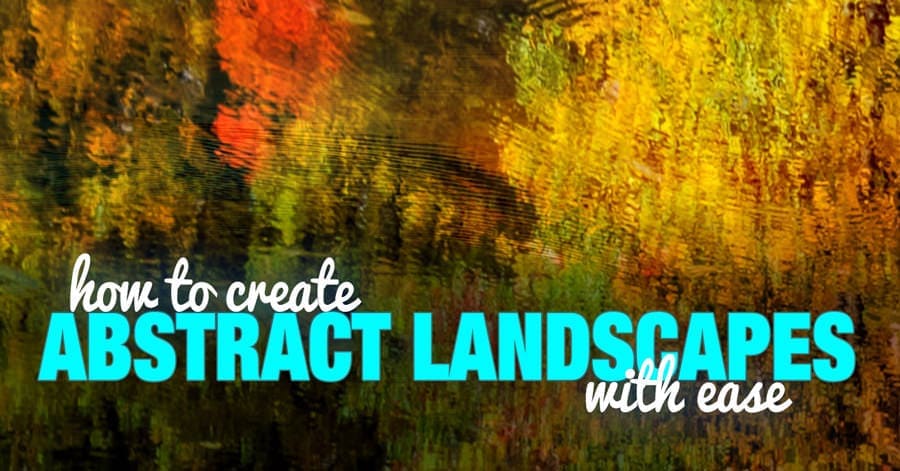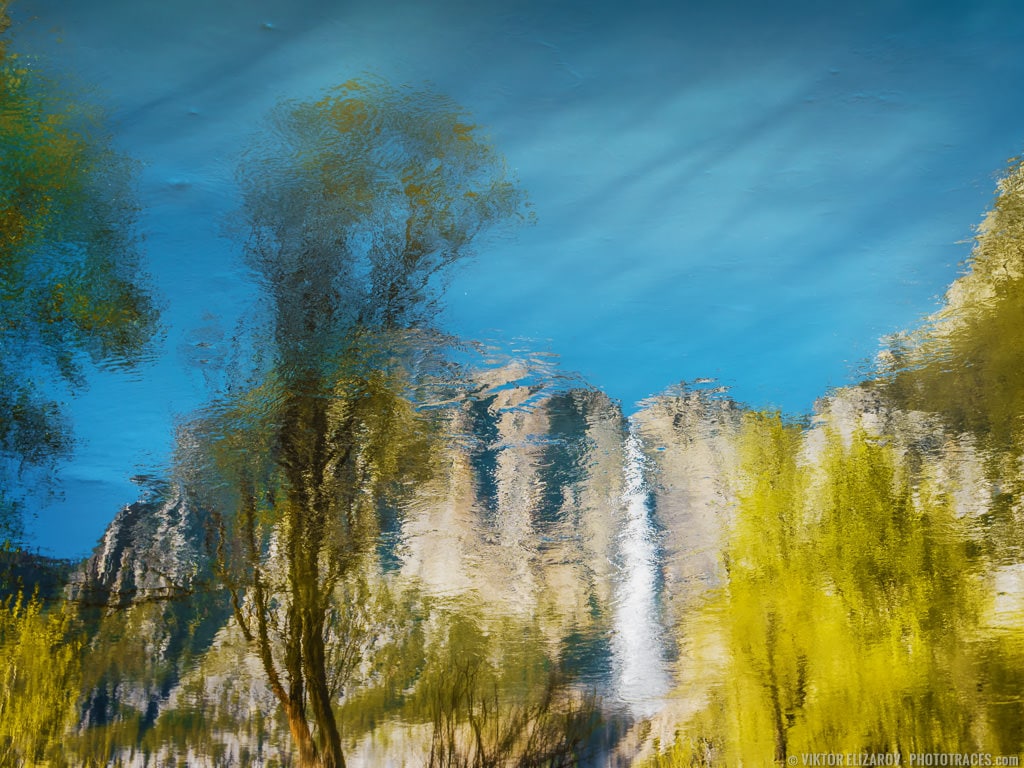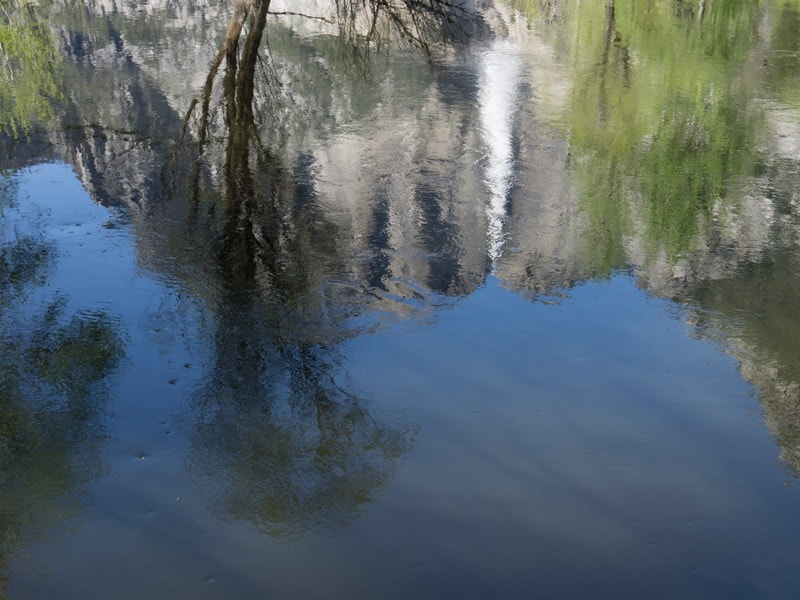Creating abstract landscapes is an advanced technique in photography. Before you can fully take advantage of this kind of composition, it requires a photographer to be fully comfortable with the general concept of composition and how to apply it in different situations and different types of photography.
And, even when you are comfortable, it still takes time and practice to produce meaningful abstracts.

To help you accelerate the learning process, I want to share with you a very simple technique to start producing stunning landscape abstracts with ease.
The featured photo was one I took in Yosemite National Park.

Loc: 37.736950, -119.600254
I had a chance to visit Yosemite on multiple occasions. Although I believe Yosemite is one of the most spectacular travel photography destinations, I found it to be one of the most crowded and busiest national parks I have ever visited.
This year, in order to beat the crowd of tourists, I decided to visit Yosemite earlier than usual and took a day trip from San Francisco in the middle of April.
Related: Snow Photography Tips
It was only when I reached the park that I realized it was National Park’s Week when visitors enjoy free access to all national parks. As a result, Yosemite was even more crowded than usual.
Other than the shortcomings of my poor planning, the weather was not spectacular for photography with plain and boring skies.
I was standing on the Swinging Bridge across the Merced River facing Yosemite Falls. I knew I had a few successful and very similar shots that I had previously taken from exactly the same spot, so I decided to do something completely different.
Creating Abstract Landscape Photography
This is when I decided to take advantage of one of my favorite composition techniques—photographer water reflections.
When photographing the main object of the composition as the reflection in the water, it often produces a dreamlike effect, one you can often find in abstract or impressionist paintings.
First, I took a shot of the reflection of Yosemite in the Merced River, making sure that Yosemite Falls was the focal point of the composition.

Later, when editing the photo in Lightroom, I flipped the capture upside down to make it even more abstract.

From there, I used Lightroom Rapid Editing where I took advantage of the virtual opacity feature in Lightroom Rapid Editing PLUS for Landscapes.
Lightroom Rapid Editing Formula: Point Lobos 80% (9, 13, 17, 32, 34)


And here is another example where I use the same technique. I took advantage of autumn colors ware reflections.


